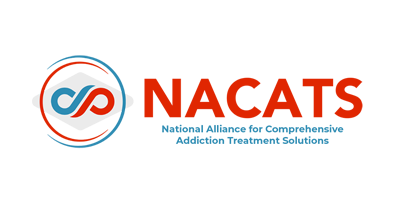
“If you can quit for a day, you can quit for a lifetime.” – Benjamin Alire Sáenz
Opioids have been a topic of discussion for years, with both prescription and illicit opioids taking over lives. There has been loss, grief, and heartbreak surrounding this epidemic, and so many Tennessee residents have been affected.
In 2022, the opioid dispensing rate in Tennessee was 61.5 per 100 residents. This is the 6th highest rate across the country. This does not include illicit opioids such as heroin, meaning the number of people taking opioids in Tennessee could be much higher.
At ReVIDA® Recovery, we understand the need for quality opioid use disorder treatment options in our communities. We have multiple locations throughout Tennessee and Virginia to connect those in need to care.
Our blog discusses topics surrounding opioids and opioid use disorders. Today, we are comparing oxycodone and heroin, looking at the similarities and differences between the two substances.
Table of Contents
Defining Oxycodone: What Is It?
Despite being a prescription, oxycodone is technically synthesized from the opium poppy plant. This means that the substance does not occur naturally – it is a derivative of the plant. Oxycodone does have medicinal applications, typically for severe pain seen after major surgeries or for patients with cancer.
Some people seek oxycodone outside of a medical prescription. As an opioid, it causes a rush of euphoria followed by drowsiness and dizziness. When taken as prescribed or recreationally, dependence can occur. This is because oxycodone binds to opioid receptors within the brain, changing the way it functions. Oxycodone becomes a need, changing behaviors to obtain the substance.
Understanding What Heroin Is
Heroin is a non-prescription synthetic opioid also fully derived from the opium poppy plant. Unlike oxycodone, it is not approved for any form of medical treatment, making it illicit. Heroin is typically smoked, snorted, injected, or swallowed. It also carries the risk of dependency when taken for long periods of time.
Heroin is cost-effective to produce and is smuggled into the United States from other countries including Afghanistan and Columbia. It has a long shelf life making it convenient for transporting. Because it is an opioid, it produces euphoric effects as well as drowsiness.

Oxycodone vs Heroin: How Do They Compare?
As we mentioned above, both oxycodone and heroin are opioids. This means they create similar side effects within the brain and body. However, there are differences between the two substances as well. Let’s take a look at how oxycodone and heroin compare.
Similarities Between Oxycodone and Heroin
Heroin and oxycodone are both synthetic opioids, meaning they require a laboratory to be made. They do come from the poppy plant, but neither substance has any plant material left after processing. This makes them more potent than other opioids such as morphine.
Both oxycodone and heroin carry the risk of developing dependence and an opioid use disorder. Dependence occurs when the brain becomes used to having heroin or oxycodone in the system. Once the substance is no longer present, withdrawal symptoms occur. These are uncomfortable and include nausea, diarrhea, sweating, trembling, and flu-like symptoms. Withdrawal is one of the main factors in continuing oxycodone or heroin use. This is where behaviors change to revolve around taking the substance, leading to a heroin or oxycodone use disorder.
The side effects of oxycodone and heroin are similar. Typically, a rush of euphoria is the first side effect noticed. Other side effects include:
- Drowsiness
- Dizziness
- Irregular heartbeat
- Nodding in and out of consciousness
- Constipation
- Lack of appetite
The route of use of oxycodone and heroin is similar. Both substances can be swallowed, snorted, or injected. However, heroin can also be smoked, whereas oxycodone is not typically used in that manner.
Differences Between Oxycodone and Heroin
There are differences between oxycodone and heroin despite both being opioids. Oxycodone is a legal, Food and Drug Administration-approved substance with medicinal purposes. Because of this, it typically comes in tablet, capsule, or liquid form. On the other hand, heroin is illegal and not regulated by any branch of government. Heroin comes in powder, liquid, or black tar form. Black tar heroin is a sticky, semi-solid form that is often smoked.
Because heroin is illicit, it tends to be more potent than oxycodone. This is because the people making it in labs do not have any regulations to follow and can create the substance however they want. Oxycodone is made in labs that are supervised by doctors, ensuring each pill or liquid dose is properly measured.
The Dangers Associated With Oxycodone and Heroin
As we mentioned above, both oxycodone and heroin pose the risk of developing an opioid use disorder. Opioids bind to receptors in the brain causing a surge of dopamine to be released. This makes the person feel good but also causes the brain to confuse the natural dopamine response with taking the substance. Without taking oxycodone or heroin, the brain will no longer produce dopamine as a response to pleasurable activities such as eating or having sex. The substances become the only thing that makes the person feel joy.
Another danger behind oxycodone and heroin is the risk of overdose. Opioid overdoses can be fatal and should be treated as a medical emergency. When too much oxycodone or heroin is taken in one sitting, the body cannot keep up with processing it. Opioids slow the central nervous system, which is responsible for breathing and temperature regulation. When it becomes overwhelmed with heroin or oxycodone, breathing can stop altogether. The result is hypoxia, where oxygen does not reach vital organs. This causes them to shut down and can lead to lasting damage. Brain injury, kidney, and liver damage can all occur from a heroin or oxycodone overdose.
Withdrawal from heroin and oxycodone can also be life-threatening. While the physical symptoms are not typically dangerous, the mental health side effects can cause irrational thoughts. Mood swings, depression, and anxiety are all at a high during withdrawal. This can lead to thoughts of self-harm, suicide, or harming others. If these thoughts ever occur, it is important to seek medical attention as soon as possible.

Getting Help for Oxycodone or Heroin Use Disorder in Tennessee
Oxycodone and heroin use disorders can take over your life, often before you realize it. The good news is there is help available to take back your life and move forward in recovery. Oxycodone addiction rehab and heroin addiction rehab are both options to begin the journey to healing both physically and mentally. Through individual and group therapy, you will learn the root causes of your substance use and how to manage stress going forward. Medication-assisted treatment may also be a part of your treatment path, helping with cravings and furthering your success in recovery. Don’t wait until it’s too late, help is right at your fingertips. All you have to do is take the first step.
If you or someone you love is managing a heroin or oxycodone use disorder, help is available right now. ReVIDA® Recovery has been helping many Appalachian residents find their recovery through Suboxone treatment and outpatient therapies. We offer same-day appointments, telehealth options, and care coordinators to help with resources. We are proud partners in our communities and accept many forms of insurance including Medicaid. Call us today at 423-631-0432 to learn more about our program offerings.
Reclaim your life.









